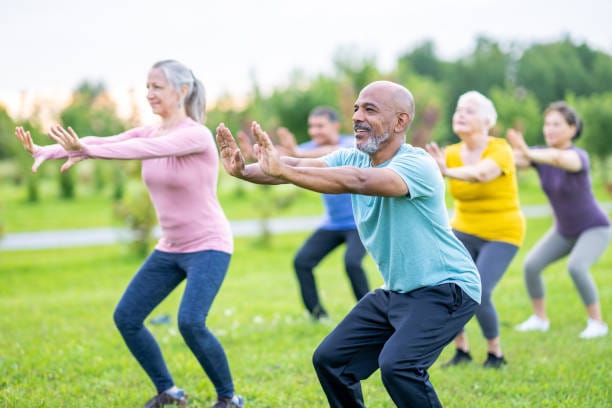- L-Plate Retiree
- Posts
- Scientists Discover How Exercise Actually Slows Aging at the Cellular Level
Scientists Discover How Exercise Actually Slows Aging at the Cellular Level
Chinese Research Reveals the Kidney-Produced Molecule That Acts as Your Body's Anti-Aging Pharmacy

because retirement doesn’t come with a manual
Your trusty L-Plater is back, navigating the twists and turns of retirement (and pre-retirement!) so you don't have to go it alone. Fasten your seatbelts, it's time for another dose of wisdom, wit, and ways to make this chapter your best one yet!

The quick scan: Wednesday delivered another triumphant performance as markets bounced back from Tuesday's modest pullback, with investors feeling like they'd finally found their rhythm after a brief stumble. The rally showed impressive resilience as optimism about trade deals and economic growth kept the record-breaking momentum alive.
• S&P 500: Rose 0.5% to close at a fresh record high of 6,227.42, proving that sometimes the best comebacks happen when you least expect them
• Dow Jones: Slipped slightly by 0.02% to 44,484.42, blue chips taking a breather while tech stocks stole the show
• NASDAQ: Jumped 0.9% to 20,393.13, tech stocks apparently deciding that Wednesday was the perfect day to remind everyone why they're called "growth" stocks
What's driving it: A combination of positive trade developments with Vietnam, strong tech sector performance, and the market's remarkable ability to shake off Tuesday's modest losses like water off a duck's back.
Bottom line: Wednesday's fresh records suggest this bull market has serious staying power. When markets can bounce back from pullbacks and immediately hit new highs, it's usually a sign that the underlying momentum is stronger than the daily noise.

Scientists Crack the Code: How Exercise Actually Slows Aging (Spoiler: It's Not What You Think)

exercising regularly is easier with a group of friends
The scoop: Chinese scientists have finally answered the question that's been bugging researchers for decades: exactly how does long-term exercise slow aging? The answer isn't just "because it makes you stronger"—it's far more fascinating and involves a kidney-produced molecule called betaine that acts like your body's own personal anti-aging pharmacy. Think of it as discovering that your kidneys have been running a secret longevity lab this whole time.
The breakthrough study, published in Cell, followed 13 healthy young men who agreed to put their fitness goals on hold for 45 days (the ultimate sacrifice for science), then started running 5 kilometers every couple of days. After just 25 days of regular running, researchers found dramatic changes in immune cells, lipid metabolism, gut microbiome, and most importantly, a surge in betaine production—primarily in the kidneys.
Here's where it gets really interesting: when researchers gave betaine supplements to aged mice, the results were like watching a biological time machine in action. The mice developed stronger muscles, less inflammation, and more youthful skin than their non-supplemented counterparts. It's as if betaine acts as the body's master conductor, orchestrating anti-aging signals throughout multiple organ systems.
Actionable takeaways:
• Consistency beats intensity for anti-aging benefits: The study shows that regular, moderate exercise (like running 5K every other day) triggers betaine production more effectively than sporadic intense workouts—your kidneys prefer steady, predictable stress over chaotic bursts.
• Think beyond muscle building: Exercise's anti-aging effects work at the cellular level by suppressing inflammation and oxidative damage through kidney-generated betaine—this means even moderate exercise is literally rewiring your body's aging process.
• Consider betaine-rich foods as exercise enhancers: While your kidneys produce betaine during exercise, you can also get it from foods like beets, spinach, and quinoa—think of these as supporting actors in your anti-aging strategy.
• Focus on the long game: The researchers emphasize that betaine's geroprotective effects come from consistent, long-term exercise rather than short bursts—this isn't about weekend warrior sessions but building sustainable habits.
• Don't wait for the "exercise pill": While scientists are excited about betaine's potential as a supplement, the researchers stress that no pill can replicate exercise's full spectrum of benefits—your kidneys need the actual stimulus of movement to optimize betaine production.
Your Turn: Are you surprised to learn that your kidneys are basically running an anti-aging operation every time you exercise? Does knowing the specific science behind exercise's benefits motivate you more than just being told "exercise is good for you"? Drop a comment below and let me know if this changes how you think about your workout routine—I'm curious whether understanding the "why" makes the "how" feel more achievable!
Ready to take control of your retirement planning? Join our community of L-Plate Retirees who are learning to navigate their financial future with confidence and a sense of humour.
Subscribe now and get practical tips delivered to your inbox every weekday—because retirement doesn't come with a manual, but it should come with a plan.
The L-Plate Retiree Team
(Disclaimer: While we love a good laugh, the information in this newsletter is for general informational and entertainment purposes only, and does not constitute financial, health, or any other professional advice. Always consult with a qualified professional before making any decisions about your retirement, finances, or health.)
Reply